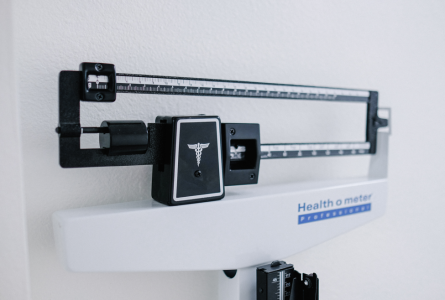Could eating just one meal a day be the secret to rapid weight loss?
The idea of feasting on one big meal and fasting the rest of the day has taken off as a popular new diet trend among some celebrities and health enthusiasts touting its potential for weight control.
Intermittent fasting diets like the One Meal A Day (OMAD) plan promise weight loss results by severely restricting eating windows.
But is it safe and effective for the average person?
OMAD follows a form of intermittent fasting that condenses all calories into a single daily meal.
Practitioners of the diet, including celebrities like Bruce Springsteen and UK Prime Minister Rishi Sunak, fast for 23 hours straight and then eat one main meal.
Only calorie-free drinks like water, black coffee, and tea are allowed outside the eating window.
By dramatically limiting eating to a single hour daily, OMAD promises weight loss by controlling overall calorie intake. But nutrition experts caution that his extreme form of intermittent fasting carries risks.
'There are no calories at all. Of course, if you don't eat you're going to lose weight, but you still need to get your nutrients,' Dr Joanna McMillan explained.
'For me, the biggest risk of fasting longer than 16 hours is you risk losing muscle, so you need to keep your protein up and keep doing resistance training,' she added.
Intermittent fasting diets like 16:8, where eating is restricted to an 8-hour window, are generally considered safe for most healthy adults. But longer fasts can make it challenging to meet nutritional needs.
Getting sufficient protein is crucial for OMAD to preserve muscle mass and nutrients like calcium, iron, and B vitamins. Meal planning and calorie counting are key.
However, nutritionists caution that extended fasts may not be suitable for all body types.
‘There is some evidence behind intermittent fasting and longevity, but as far as weight control goes, we have not got a huge number of studies about one meal a day specifically, so if you are fasting over six months, it's as effective as normal dieting, but not more so,’ Dr McMillan stated.
'Anecdotally, I think a lot of men may be able to do this more easily than women,' she continued. 'We are the gatherers, our energy stores are not as big, so potentially bigger guys with bigger energy stores, this might suit them to go for longer without eating, to be able to fast for longer.'
Research on OMAD is limited, but initial studies show mixed results.
A 2019 study found OMAD was no more effective for weight loss than traditional calorie-restricted diets over a 6-month period. But advocates of OMAD claim benefits like improved focus and blood sugar regulation.
'The take-home message here is, there is not one dietary approach that fits everybody—you have to find what works for you,' Dr McMillan concluded.
Nutritionists and health experts largely agree that intermittent fasting diets like OMAD should only be attempted with medical supervision, especially for those with conditions like diabetes or a history of disordered eating. OMAD may foster an unhealthy fixation on food for some.
Here’s what happens to the body when the OMAD diet is followed according to two doctors:

Have you tried intermittent fasting or OMAD? What was your experience? Let us know in the comments below!
Intermittent fasting diets like the One Meal A Day (OMAD) plan promise weight loss results by severely restricting eating windows.
But is it safe and effective for the average person?
OMAD follows a form of intermittent fasting that condenses all calories into a single daily meal.
Practitioners of the diet, including celebrities like Bruce Springsteen and UK Prime Minister Rishi Sunak, fast for 23 hours straight and then eat one main meal.
Only calorie-free drinks like water, black coffee, and tea are allowed outside the eating window.
By dramatically limiting eating to a single hour daily, OMAD promises weight loss by controlling overall calorie intake. But nutrition experts caution that his extreme form of intermittent fasting carries risks.
'There are no calories at all. Of course, if you don't eat you're going to lose weight, but you still need to get your nutrients,' Dr Joanna McMillan explained.
'For me, the biggest risk of fasting longer than 16 hours is you risk losing muscle, so you need to keep your protein up and keep doing resistance training,' she added.
Intermittent fasting diets like 16:8, where eating is restricted to an 8-hour window, are generally considered safe for most healthy adults. But longer fasts can make it challenging to meet nutritional needs.
Getting sufficient protein is crucial for OMAD to preserve muscle mass and nutrients like calcium, iron, and B vitamins. Meal planning and calorie counting are key.
However, nutritionists caution that extended fasts may not be suitable for all body types.
‘There is some evidence behind intermittent fasting and longevity, but as far as weight control goes, we have not got a huge number of studies about one meal a day specifically, so if you are fasting over six months, it's as effective as normal dieting, but not more so,’ Dr McMillan stated.
'Anecdotally, I think a lot of men may be able to do this more easily than women,' she continued. 'We are the gatherers, our energy stores are not as big, so potentially bigger guys with bigger energy stores, this might suit them to go for longer without eating, to be able to fast for longer.'
Research on OMAD is limited, but initial studies show mixed results.
A 2019 study found OMAD was no more effective for weight loss than traditional calorie-restricted diets over a 6-month period. But advocates of OMAD claim benefits like improved focus and blood sugar regulation.
'The take-home message here is, there is not one dietary approach that fits everybody—you have to find what works for you,' Dr McMillan concluded.
Nutritionists and health experts largely agree that intermittent fasting diets like OMAD should only be attempted with medical supervision, especially for those with conditions like diabetes or a history of disordered eating. OMAD may foster an unhealthy fixation on food for some.
Here’s what happens to the body when the OMAD diet is followed according to two doctors:
Key Takeaways
- A popular weight-loss method called the One Meal A Day (OMAD) diet has been cautioned against by qualified nutritionist Dr Joanna McMillan.
- Despite allowing for unlimited food intake during one meal, the diet makes it nearly impossible to receive all necessary nutrients in one sitting.
- The OMAD diet could result in muscle loss if not supplemented with protein and resistance training, according to Dr McMillan.
- A 2019 study found OMAD was no more effective for weight loss than traditional calorie-restricted diets over a 6-month period.
Have you tried intermittent fasting or OMAD? What was your experience? Let us know in the comments below!








